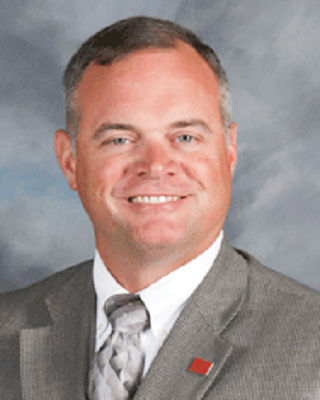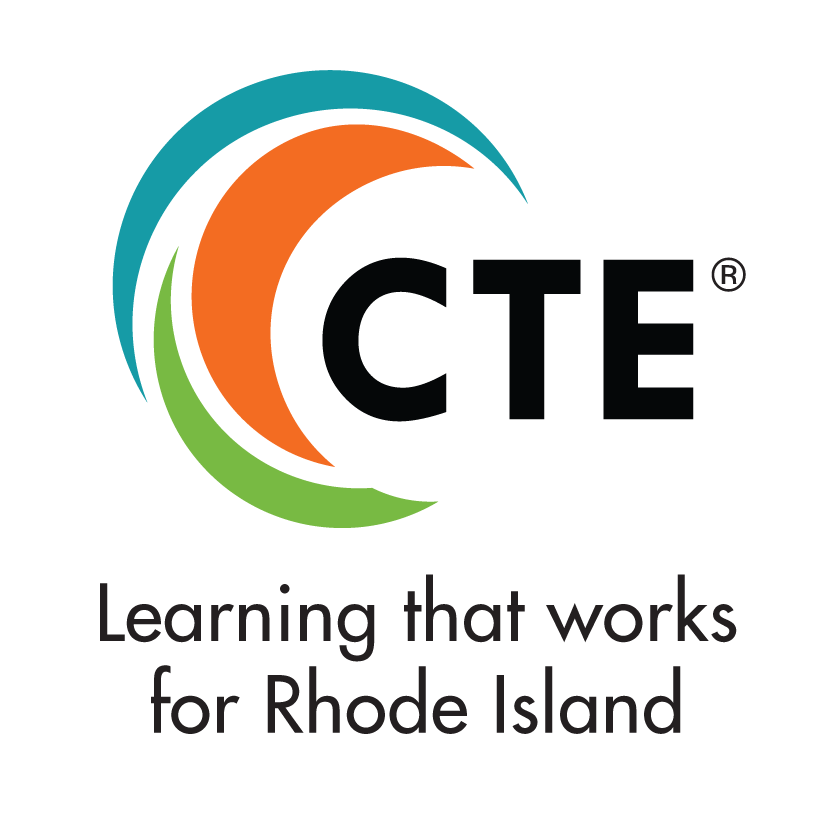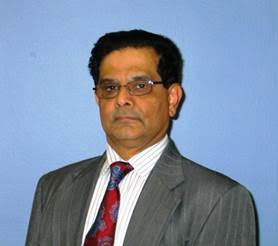 Jimmy Hull began his career in education as a classroom teacher in Alabama. Since then, Jimmy has served in numerous roles including high school principal and the president of the Association of Career and Technical Education Alabama. As of July 2020, Jimmy now serves as the Assistant State Superintendent of Education in the Career and Technical Education/ Workforce Development Division for the Alabama State Department of Education.
Jimmy Hull began his career in education as a classroom teacher in Alabama. Since then, Jimmy has served in numerous roles including high school principal and the president of the Association of Career and Technical Education Alabama. As of July 2020, Jimmy now serves as the Assistant State Superintendent of Education in the Career and Technical Education/ Workforce Development Division for the Alabama State Department of Education.
Jimmy has entered into his new position at an interesting if not difficult time, balancing the start of a new and unusual school year under mandated social distancing, while also implementing the first year of his state’s new plan for the Strengthening Career and Technical Education for the 21st Century Act (Perkins V). Alongside these challenges, there are still multiple priorities on Jimmy’s list. As a former educator, it is clear that a passion lies in heartfelt teacher preparation and training, recruiting and sustaining quality teachers for Career Technical Education (CTE) classrooms. He has plans to develop and implement a teacher prep program that would align with a teacher’s first three years of teaching.
Core components of Alabama’s state Perkins plan is the commitment to breaking barriers of entry and access to CTE programs for identified student populations; building transitions for a seamless progression from high school to postsecondary education and finally to the workforce; and increasing postsecondary attainment for learners. The plan was driven by key stakeholders including a strong partnership with the Governor’s office. Jimmy also identified other key areas of growth for Alabama including career exploration in the middle and elementary grades, innovative ways to offer apprenticeship opportunities, and a working partnership with the state’s community colleges.
Jimmy believes strongly in CTE’s vital role in economic development in his state and in the nation and has plans to begin fulfilling this role by ensuring that every voice is heard by meeting with schools’ administrative teams and formulating new strategic goals for the future ahead.
Welcome Jimmy!
Brittany Cannady, Digital Media Associate


 Paul McConnell is a lifelong Rhode Islander and has worked at the
Paul McConnell is a lifelong Rhode Islander and has worked at the  Elizabeth Bennett has been working in Career Technical Education (CTE) for twenty years in
Elizabeth Bennett has been working in Career Technical Education (CTE) for twenty years in  Craig Statucki had a most unusual first day as the State CTE Director in Nevada. March 16, 2020, was the state’s first day of school closures due to the COVID-19 (Coronavirus) pandemic. He spent his first couple of weeks on the job gaining an understanding of what school building closures would mean for Career Technical Education (CTE) delivery across his state, especially as some school years were scheduled to end as early as Memorial Day weekend. Craig is proud to report that many CTE programs donated their personal protective equipment (PPE), among other supports provided to frontline workers including those in healthcare, transportation distribution and logistics, and more. He believes this will encourage continued connections between CTE programs and communities and is an action that proves the strong link between high-quality CTE programs and flourishing communities.
Craig Statucki had a most unusual first day as the State CTE Director in Nevada. March 16, 2020, was the state’s first day of school closures due to the COVID-19 (Coronavirus) pandemic. He spent his first couple of weeks on the job gaining an understanding of what school building closures would mean for Career Technical Education (CTE) delivery across his state, especially as some school years were scheduled to end as early as Memorial Day weekend. Craig is proud to report that many CTE programs donated their personal protective equipment (PPE), among other supports provided to frontline workers including those in healthcare, transportation distribution and logistics, and more. He believes this will encourage continued connections between CTE programs and communities and is an action that proves the strong link between high-quality CTE programs and flourishing communities. Erskine Glover started as New Jersey’s Director, Office of Career Readiness, in early 2020 and has already visited several school districts in the state to visit with administrators, instructors and learners to see how CTE is working for New Jersey. Erskine brings a breadth and depth of educational experience with him to this new position, having served as an educator in northern New Jersey for 24 years including as an assistant superintendent for a couple of years, school administrator for 14 years, and teacher for eight years. Erskine has spent the majority of his career in the K-8 landscape.
Erskine Glover started as New Jersey’s Director, Office of Career Readiness, in early 2020 and has already visited several school districts in the state to visit with administrators, instructors and learners to see how CTE is working for New Jersey. Erskine brings a breadth and depth of educational experience with him to this new position, having served as an educator in northern New Jersey for 24 years including as an assistant superintendent for a couple of years, school administrator for 14 years, and teacher for eight years. Erskine has spent the majority of his career in the K-8 landscape.  Melissa Hickey is once again heading up Career Technical Education (CTE) at the Connecticut State Department of Education, where she has been working for the past four years. Melissa returns to this role while also serving as the Reading/Literacy Director for the state. She has held a number of education roles including beginning her education career as a second grade teacher, serving as a coach, science coordinator and district-level administrator.
Melissa Hickey is once again heading up Career Technical Education (CTE) at the Connecticut State Department of Education, where she has been working for the past four years. Melissa returns to this role while also serving as the Reading/Literacy Director for the state. She has held a number of education roles including beginning her education career as a second grade teacher, serving as a coach, science coordinator and district-level administrator. Henry Mack started as the Chancellor for Career, Technical and Adult Education in Florida in November 2019 and is approaching his new role with great thought and enthusiasm. Previously, Henry served as Vice President for Workforce Education and Innovation at Broward College in southeast Florida, ensuring alignment between the college’s academic programs and local market demands. Henry also taught undergraduate philosophy and religion at the University of Miami and at Florida International University, having studied philosophy and theology at The Catholic University of America in Washington, DC
Henry Mack started as the Chancellor for Career, Technical and Adult Education in Florida in November 2019 and is approaching his new role with great thought and enthusiasm. Previously, Henry served as Vice President for Workforce Education and Innovation at Broward College in southeast Florida, ensuring alignment between the college’s academic programs and local market demands. Henry also taught undergraduate philosophy and religion at the University of Miami and at Florida International University, having studied philosophy and theology at The Catholic University of America in Washington, DC Once the snow melts, Dennis Harden will be running the trails in Des Moines, Iowa. For now, he’ll have to stick to running the state’s Bureau of Career and Technical Education (CTE) as the new CTE Bureau Chief.
Once the snow melts, Dennis Harden will be running the trails in Des Moines, Iowa. For now, he’ll have to stick to running the state’s Bureau of Career and Technical Education (CTE) as the new CTE Bureau Chief.  We are celebrating 100 years of Advance CTE! Throughout the year, we’ll feature interviews with past State CTE Directors, Board of Directors members, partners, CTE leaders and more. This month, learn more about how Pradeep Kotamraju, Division Director, Career and College Transition Division, California Department of Education, former Board of Directors President, views CTE’s past and future.
We are celebrating 100 years of Advance CTE! Throughout the year, we’ll feature interviews with past State CTE Directors, Board of Directors members, partners, CTE leaders and more. This month, learn more about how Pradeep Kotamraju, Division Director, Career and College Transition Division, California Department of Education, former Board of Directors President, views CTE’s past and future. part of the National Leadership Institute and their priority was centered around CTE. Although I had heard about Kimberly Green [Executive Director of Advance CTE] several times before, I really did not get involved with Advance CTE until around 2004 — when I essentially was placed in charge of running Perkins in Minnesota.
part of the National Leadership Institute and their priority was centered around CTE. Although I had heard about Kimberly Green [Executive Director of Advance CTE] several times before, I really did not get involved with Advance CTE until around 2004 — when I essentially was placed in charge of running Perkins in Minnesota.